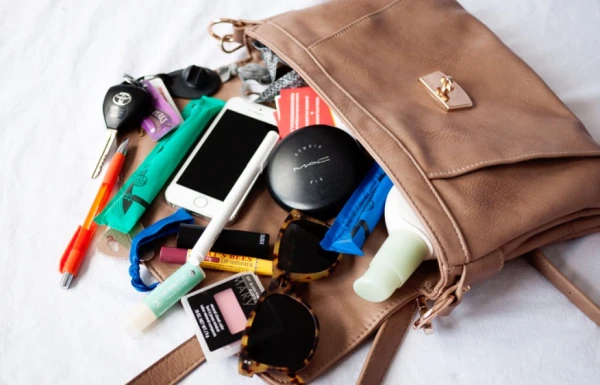
A full cart on a marketplace seems like a harmless little thing, but in reality, it can be a symptom of deep financial beliefs.
Today, marketplaces have become part of the routine: you log in for a minute and already place an order. A dress in the style of Jacquemus, tableware like on Pinterest, a cozy sweater just in case: quick, beautiful, and seemingly inexpensive. This is what makes shopping attractive: no extra effort, everything is simple and at hand. But the easier the ordering process becomes, the less we think about whether we actually need the item itself.
This format of shopping fuels not so much a real need as an emotional impulse. You buy not because the item is necessary, but because it is convenient, cheap, and familiar. This is not always bad, but it definitely requires awareness. Otherwise, a person may develop an automatic reaction to the "order" button rather than a habit of choosing.
When Shopping Becomes Too Fast
Frequent interaction with marketplaces creates a short cycle: saw it — wanted it — ordered it. Thanks to deferred payment, the option not to buy the item or to return it, the decision to purchase no longer seems like a serious step, but this ease can affect financial habits over time.
Purchases cease to be perceived as expenses: they become something intermediate and almost unnoticed. As a result, attention to spending may decrease: a person loses the sense of how much they are actually spending, especially if it involves dozens of small purchases over the month — each of which seems insignificant, but together they can amount to a serious sum.
Things Pile Up, But Don't Work Together
When purchases are made spontaneously, without an overarching idea, they often do not come together into a coherent picture. Items appear in the home that seem useful but do not match each other. One set of bed linens, another black t-shirt, yet another sweater similar to three already owned. It is hard to say that all of this is a conscious choice.
In the wardrobe, this is very noticeable: the number of items increases, but there is still nothing to wear. Each subsequent order looks like an attempt to fill in or complement, but more often than not, it only adds to the feeling of disconnection. Importantly, this does not mean that there is something wrong with marketplaces. It is just that in convenience, one should not lose their own logic.
Shopping as a Way to Cope with Stress
Sometimes a person places an order not because they need something, but because they want to distract themselves, feel in control, or simply treat themselves. This is a normal reaction, especially when feeling tired or overwhelmed. You order a small item — it becomes a little easier. But if this turns into a regular habit, there may be a feeling that money is being spent, but satisfaction is still lacking.
Against this backdrop, some people may experience anxiety: they feel that they are spending, but do not understand on what exactly. This is not a universal scenario, but in practice, it occurs more often.
Where Addiction Comes From
Marketplaces literally help to navigate: they suggest trends, offer collections, recommend similar products. This saves time and reduces the stress of choice. But there is also a downside: gradually, a person may unlearn how to navigate without prompts — they stop trusting themselves, begin to doubt their own taste, and rely solely on recommendations.
This is not a criticism of algorithms: they do what they are designed to do. But it is important for the user to remember that they also have a voice, and if they constantly take what is offered in "similar products," it becomes difficult over time to understand what you truly like.
Purchasing as a Way to Feel Movement
When life lacks a sense of progress, purchases can temporarily compensate for it: it seems like you are changing something and taking a step forward. But upon closer inspection, it may just turn out to be a repetition of the same: the same brands, the same items, and the same patterns of behavior. Everything is familiar, convenient, safe, and thus repeats endlessly.
Many marketplace users note: at some point, purchases cease to inspire. And this is already a good reason to pause for a moment: not to abandon marketplaces, but rather to use them beneficially.













Leave a comment